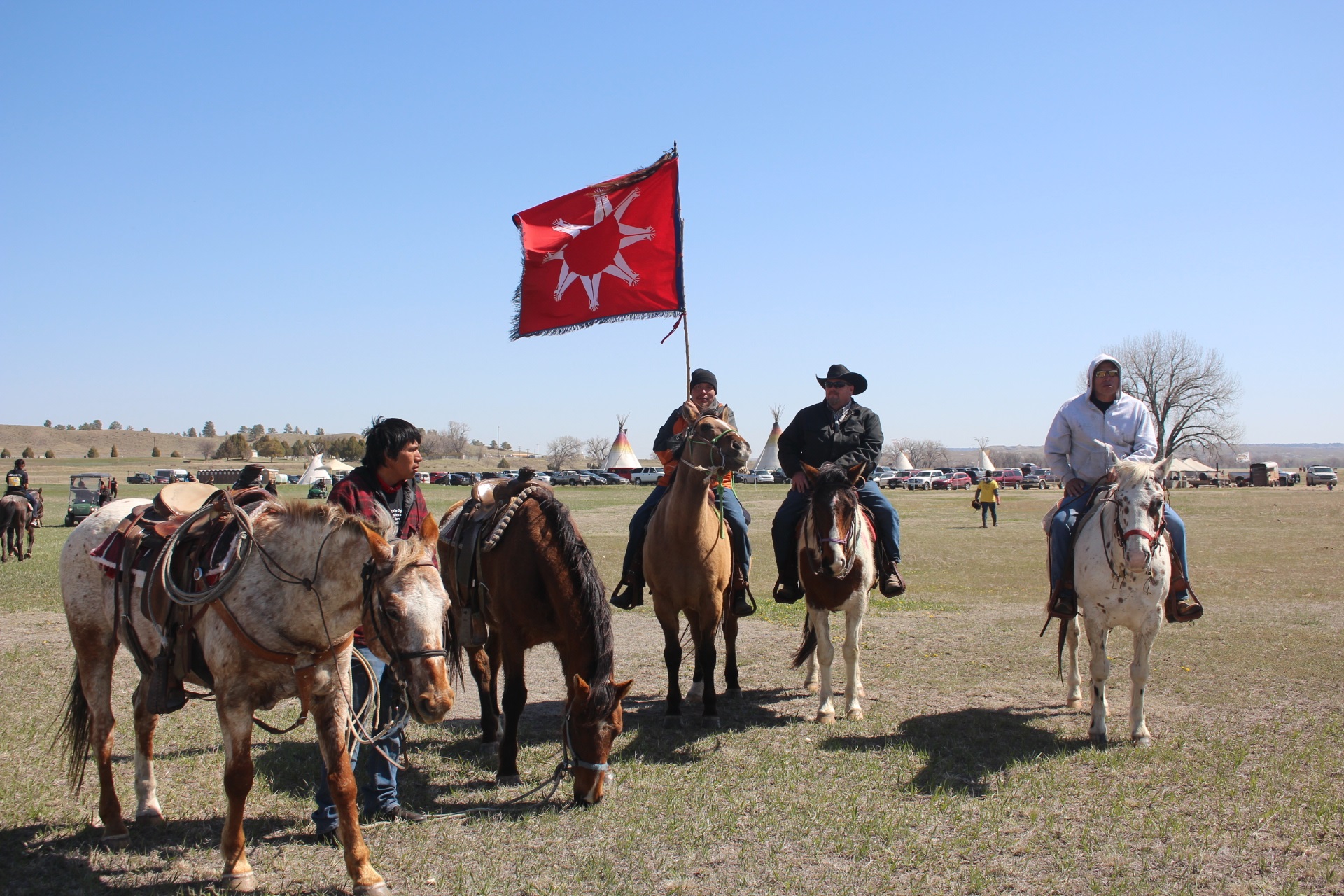Indianz.Com > News > Native Sun News Today: Tribes cite treaty rights in fight against fracking

Fracking violates treaties: Tribes protest
Tuesday, September 15, 2020
Native Sun News Today Health & Environment Editor
PINE RIDGE – On August 31, Oglala Sioux Tribal Acting President Thomas Poor Bear sent an official letter to the federal Bureau of Land Management requesting it take into account overlooked treaty rights before issuing a decision on a proposal to open up Wyoming oil-and-gas fracking.
The origin history of the Sioux tribes in relation to the Black Hills, which was used as a basis for decision making in the development, “is based on the speculation of white historians,” the “Letter of Protest to the Final Environmental Impact Statement (FEIS) and Proposed Resource Management Plan Amendment (RMPA) for the Converse County Oil and Gas Project” complains.
The letter is filed on behalf of all Sioux tribes in the Great Plains Tribal Water Alliance, Inc., which coordinates Missouri River Basin water protection.
The impact statement “did not include any history from Sioux spiritual leaders and historians,” leading to a charge that BLM Authorizing Officer Stephanie Connally “failed to fulfill the intent and process outlined in the National Environmental Policy Act and implementing regulations,” as necessary for cultural resource preservation.
The BLM’s final analysis and proposed action for the Converse County Oil and Gas Project is available for public review…
Posted by Bureau of Land Management – Wyoming on Thursday, July 30, 2020
NATIVE SUN NEWS TODAY
Support Native media!
Read the rest of the story on Native Sun News Today: Fracking violates treaties: Tribes protest
Contact Talli Nauman at talli.nauman@gmail.com
Note: Copyright permission Native Sun News Today
Search
Filed Under
Tags
More Headlines
Native America Calling: No ordinary animal
Native America Calling: Safeguards on Artificial Intelligence
NAFOA: 5 Things You Need to Know this Week
Chuck Hoskin: Cherokee Nation takes the lead for our environment
Native America Calling: Earth Day assessment for Native peoples
Cronkite News: Gathering addresses ‘epidemic’ among Native people
VIDEO: Cody Desautel on tribes and federal forest management
AUDIO: Legislative Hearing on Discussion Draft of Forest Management Bill
Native America Calling: Remembering the 1974 Navajo border town murders
Native America Calling: Can the right approach close the Native immunization gap?
Cronkite News: Long COVID cases remain high in Arizona
Native America Calling: Eyes in the sky for development, public safety, and recreation
Native America Calling: Three new films offer diverse views of Native life
NAFOA: 5 Things You Need to Know this Week
Chuck Hoskin: Cherokee Nation works toward cure for arthritis
More Headlines
Native America Calling: Safeguards on Artificial Intelligence
NAFOA: 5 Things You Need to Know this Week
Chuck Hoskin: Cherokee Nation takes the lead for our environment
Native America Calling: Earth Day assessment for Native peoples
Cronkite News: Gathering addresses ‘epidemic’ among Native people
VIDEO: Cody Desautel on tribes and federal forest management
AUDIO: Legislative Hearing on Discussion Draft of Forest Management Bill
Native America Calling: Remembering the 1974 Navajo border town murders
Native America Calling: Can the right approach close the Native immunization gap?
Cronkite News: Long COVID cases remain high in Arizona
Native America Calling: Eyes in the sky for development, public safety, and recreation
Native America Calling: Three new films offer diverse views of Native life
NAFOA: 5 Things You Need to Know this Week
Chuck Hoskin: Cherokee Nation works toward cure for arthritis
More Headlines
